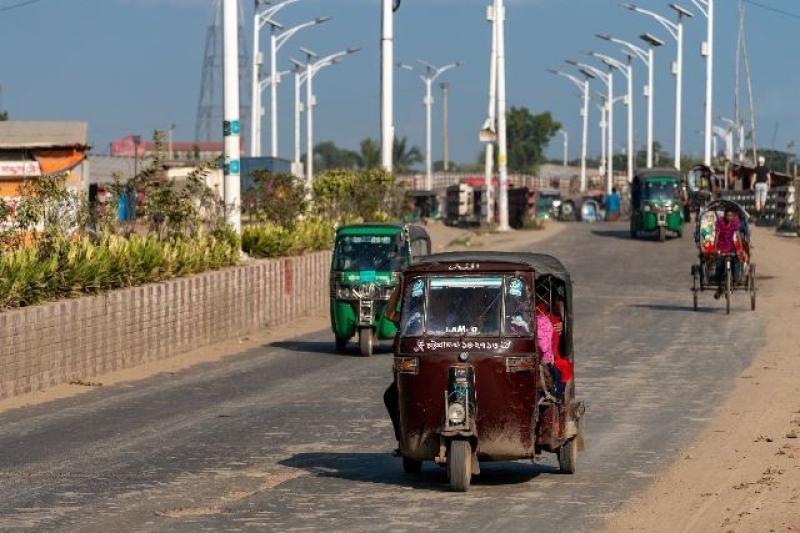- অতিথি পাখির বিচরণ আর দুষ্টুমিতে নান্দনিক হয়ে উঠেছে কুয়াকাটার চর বিজয় |
- Remittance inflow exceeds $632 million in first six days of Dec |
- 18 migrants die as inflatable boat sinks south of Greek island of Crete |
- TIB for polls manifesto vows to curb misuse of powers and religion |
- Khaleda now not fit for travelling: Medical Board |
After rain ‘Moderate’ air quality recorded in Dhaka on Sunday

Air quality of Dhaka recorded moderate on Sunday 2 Nov 2025
Dhaka, Nov 2 -Dhaka, the overcrowded capital city of Bangladesh, has ranked 13th on the list of cities with the worst air quality with an AQI score of 97 at 9:30am this morning (November 2, 2025).
Today Dhaka’s air was classified as ‘moderate,’ referring to a light health threat, according to the AQI index. Such air quality continued for the past few days.
When the AQI value for particle pollution is between 50 and 100, air quality is considered ‘moderate’, usually sensitive individuals should consider limiting prolonged outdoor exertion, between 101 and 150, air quality is considered ‘unhealthy for sensitive groups’, between 150 and 200 is ‘unhealthy’, between 201 and 300 is said to be 'very unhealthy', while a reading of 301+ is considered 'hazardous', posing serious health risks to residents.
India’s Delhi, Pakistan’s Lahore and China’s Shanghai cities respectively occupied the first, second and third spots on the list, with AQI scores of 446, 339, and 208 respectively.
The AQI, an index for reporting daily air quality, informs people how clean or polluted the air of a certain city is and what associated health effects might be a concern for them.
The AQI in Bangladesh is based on five pollutants: particulate matter (PM10 and PM2.5), NO2, CO, SO2, and ozone.
Dhaka has long been grappling with air pollution issues. Its air quality usually turns unhealthy in winter and improves during the monsoon.
As per World Health Organization (WHO), air pollution kills an estimated seven million people worldwide every year, mainly due to increased mortality from stroke, heart disease, chronic obstructive pulmonary disease, lung cancer, and acute respiratory infections. - UNB

